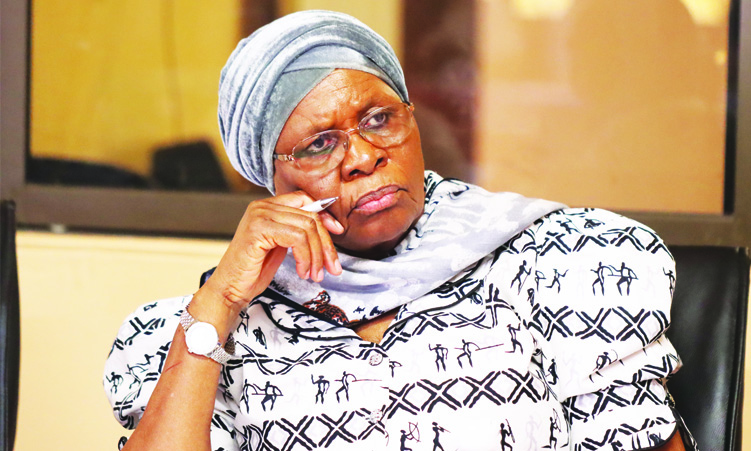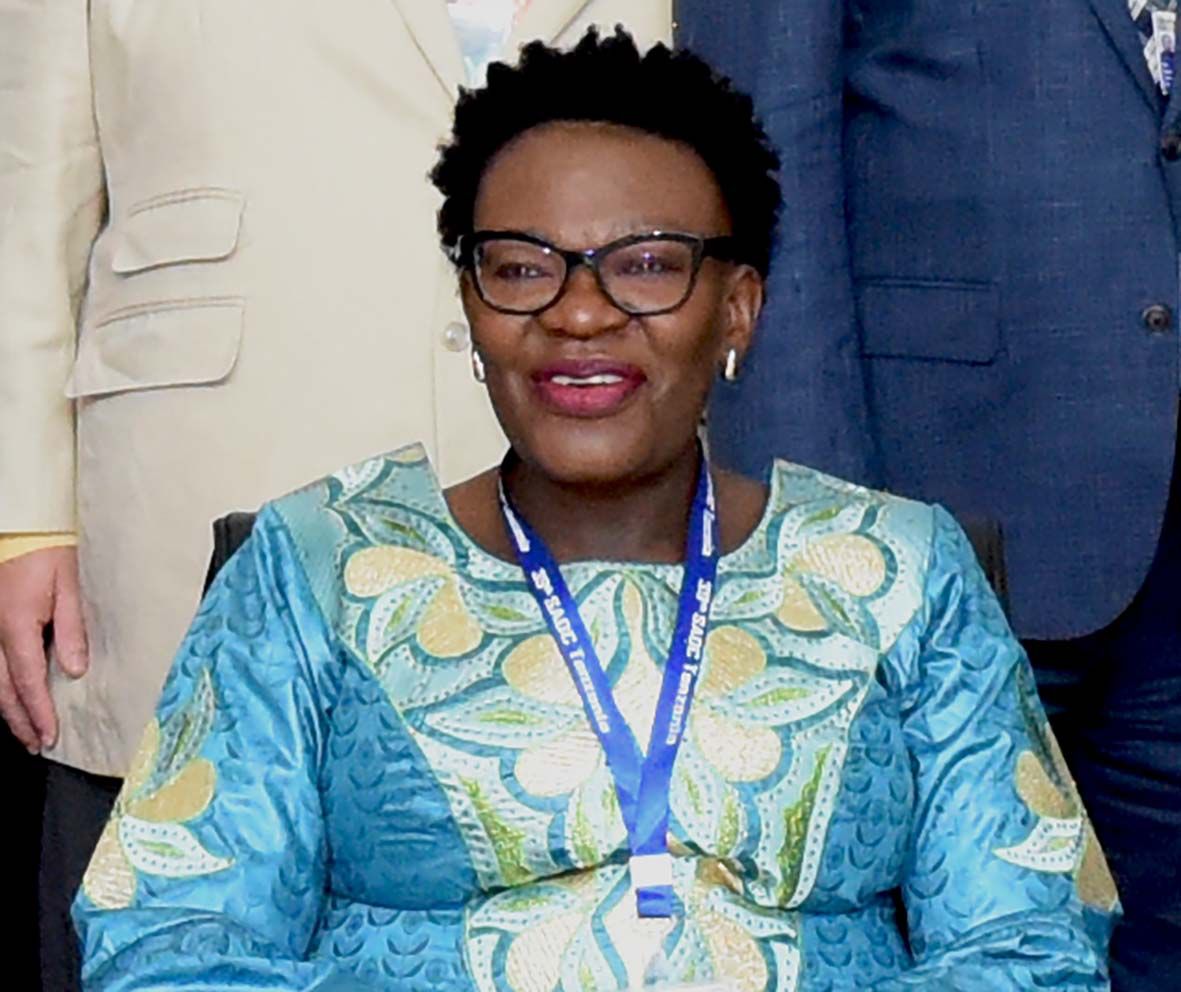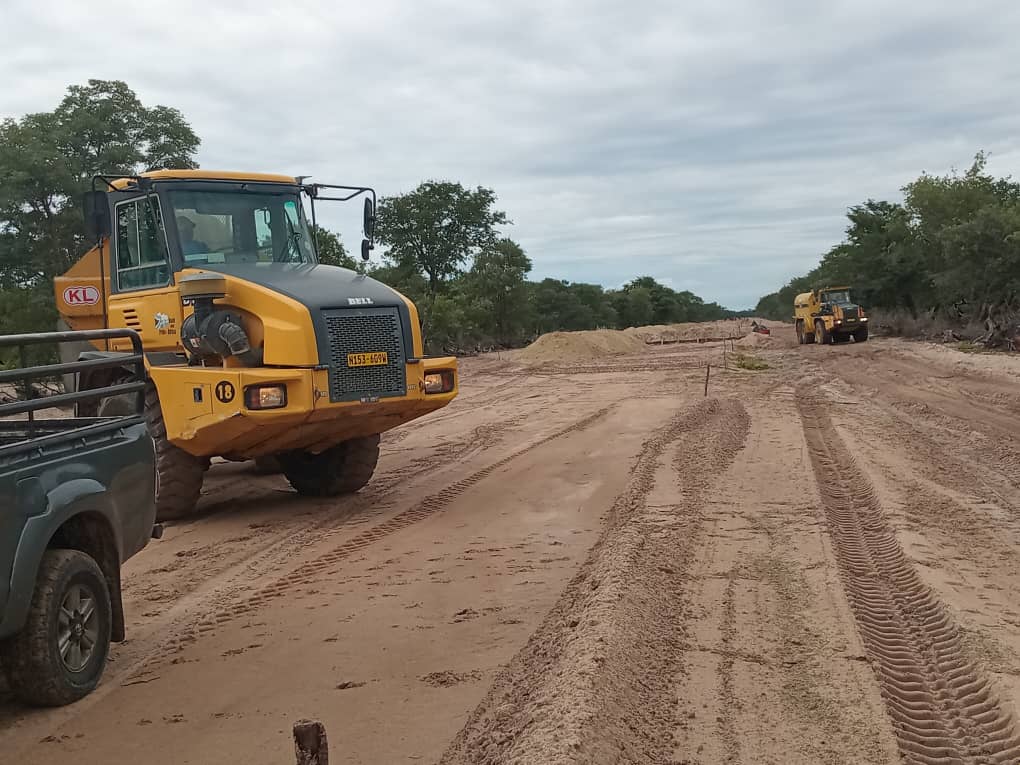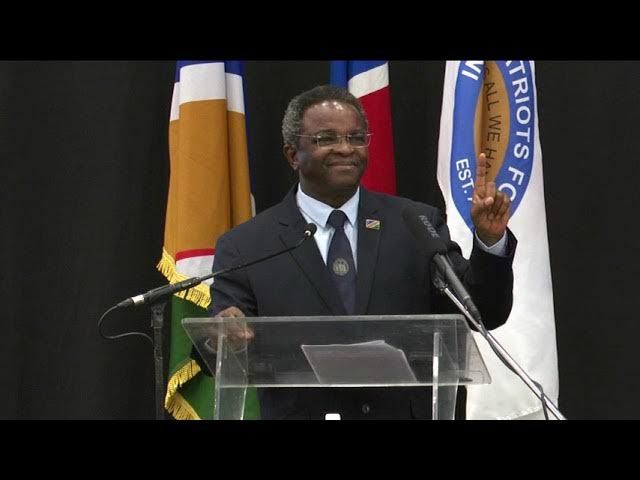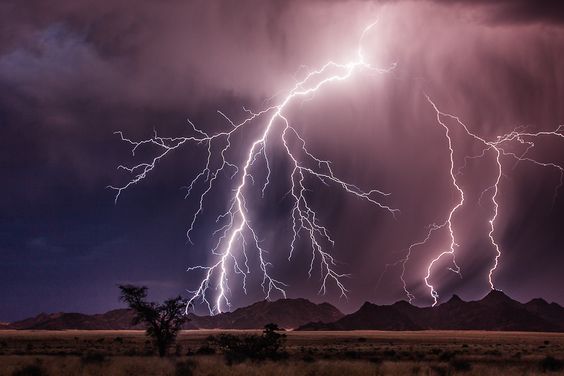This question-and-answer session was published by Swapo Today in 2022 to provide insight into the political journey of Netumbo Nandi-Ndaitwah (NNN).
ST: Who exactly is Netumbo Nandi-Ndaitwah?
NNN: The vice president of Swapo is Netumbo Nandi-Ndaitwah, born as Ndempelila Netumbo Nandi. Ndaitwah came after I got married.
I am the ninth child of 13 siblings, born in the north of Namibia at a village called Onamutai, now in the Oshana region’s Ongwediva constituency.
I was born from a family of peasants, while my upbringing was a mix of culture and religion, because even though my father was a clergyman of the Anglican Church, he never parted from culture.
For example, for any Namibian man in that particular community, if there were to be anything that would have to be celebrated, we would organise a feast at the end of the season, when your cattle herders come back home.
Now with the advent of Christianity, some of these traditions were found to be non-Christian, but while still a clergyman, my father always insisted on appreciating our people in that manner regardless.
Another tradition that was also condemned by Christianity was traditional marriages, but my father always insisted that his children must know their culture, so we were always allowed to balance as a result.
Growing up, political activities were also never far from our community. In fact, Ohalushu and Endola are neighbouring villages, so as we were growing up, we would see Swapo activities organised by the likes of comrade Kaxuumba Kandola.
They would mobilise in our communities, having meetings in the shade of big trees on Sundays after church, where we would attend and participate.
The slogan and driving motto of that time in Oshiwambo was ‘Kwayela Kwasha’, loosely translated as ‘it has dawned’, and we should all wake up to see what was coming.
These are some Swapo activities that attracted and inspired us, until I finally got my membership card in 1966.
At the time I was a pupil at St Mary’s Mission, Odibo School, where I received much of my primary and secondary education.
Between 1969 and 1970, when the Swapo Party Youth League (SPYL) was established at the Tanga Consultative Conference, we got the message back home, and as young people of Namibia, we began to be activists.
This was indeed the time I was then given the responsibility by my colleagues to be the chairperson of the SPYL in Owamboland, a position I held until I left.
Once, during the workers’ strike, we were very active and organised young people in the north, supported by our comrades at Walvis Bay: Ndali Kamati, Jerry Ekandjo and others.
Ongulugombashe also added some impetus, as well as the events that occurred at Oshikango.
We were very strategic, and so when we were addressing our meetings, we knew that whoever was going to be the speaker on that particular day was not going to see the sun, but would be peeping at it from the cells.
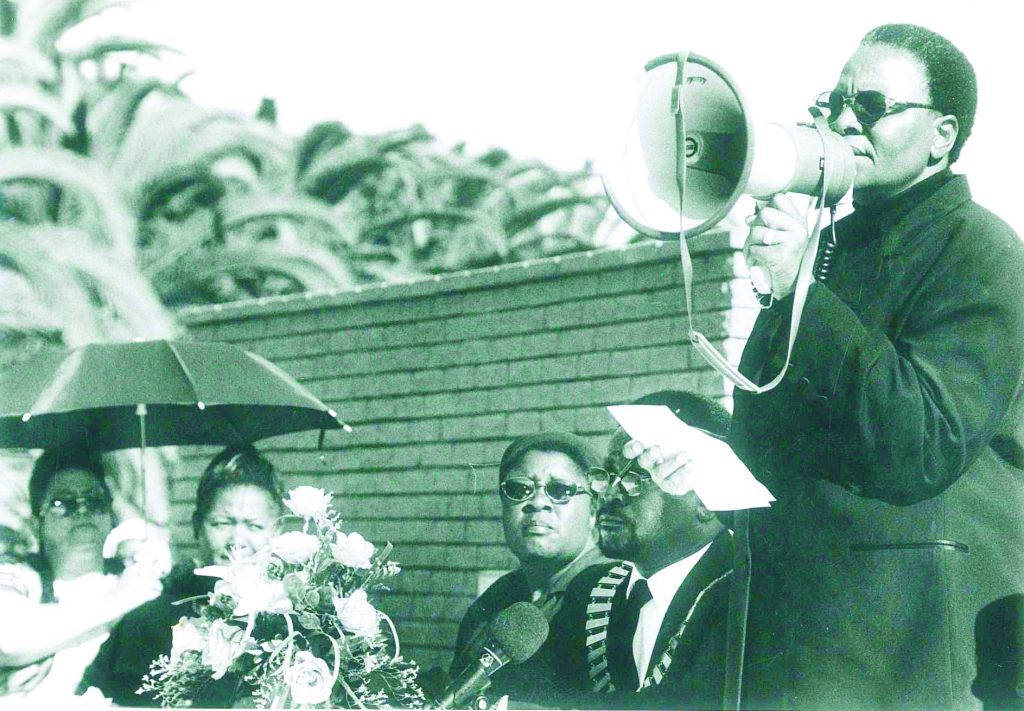
To authenticate and legitimise our calls for meetings, the chairperson signs letters and pamphlets calling for meetings. With so much brutal resistance, we had some of our comrades appearing in court at Ondangwa.
Were we mobilised to be in attendance in full force on the day we were then also arrested at Ondangwa.
We really didn’t stay long – just six months, compared to others who were at Robben Island and other places. So, ours was really short.
We were afforded an opportunity to appear before court. Judge Brain Olynn was our lawyer, although he didn’t show up at Ondangwa. He had sent a young lawyer to represent us. During the proceedings, one by one our colleagues were being released while four of us remained – myself, comrade Wuulitala, comrade Kalomo and comrade Keshi.
It was indeed during these proceedings that I actually learned Afrikaans. I was accused number one, which somehow became my name. After the proceedings, I was sentenced to three years, although suspended. It was during this window period that I decided to go into exile.
I crossed the border to Angola in June 1974. We were five in our group, four men and myself as chairperson. I was the group leader, as we were left in Swapo’s care. We first went to Osinanga, then later were sent to Omahepa Refugee Camp, where we stayed for a month, until I was assigned to Lusaka as an administrator, serving in the office of the late Moses Garoëb.
My first trip outside Lusaka was in September 1974, when we were part of the Swapo delegation to the United Nations (UN) General Assembly. That was the first time I addressed the UN. I had to present the case of Namibia to the Decolonisation Committee.
That’s exactly also where I met president Hage Geingob, who at the time was working at the office of the UN Council for Namibia. In fact, we stayed at his apartment in New York. There were five of us – Taati Ithindi, Ulitala Hiveluah, John ya Otto, and another comrade who later went to Sweden.
After that meeting, we came back. I became part of the negotiating team for the UN Resolution 435, and then I advanced as chief representative, first to Lusaka, then to Dar es Salaam until 1986, when I was sent to the United Kingdom for further studies.
I did a post-graduate in public administration, and then a post-graduate diploma in international relations, and then my master’s in diplomatic studies.
ST: How do you balance your roles as Namibia’s deputy prime minister, Swapo vice president and Namibia’s minister of international relations and cooperation, as well as that of wife and mother?
NNN: As a leader and most importantly as a mother, I am informed by the Namibian Constitution, which is very clear that the family is the most basic unit in our society. And therefore we should ensure a strong and stable nation. Because if the basic unit is weak, what do we expect of others? So that is why I am married to my husband, Denga.
We got married in exile in Tanzania in 1982. By then I was still Swapo’s chief representative.
And we felt honoured, because without all your family, especially parents, we really needed somebody to bless us, because as Africans we believe in the power of blessings from our parents.
We were further blessed because when we informed Moses Garoëb that we were getting married in Dar es Salaam, he committed to us. So basically, comrade Garoëb played a very important role as both our parents.
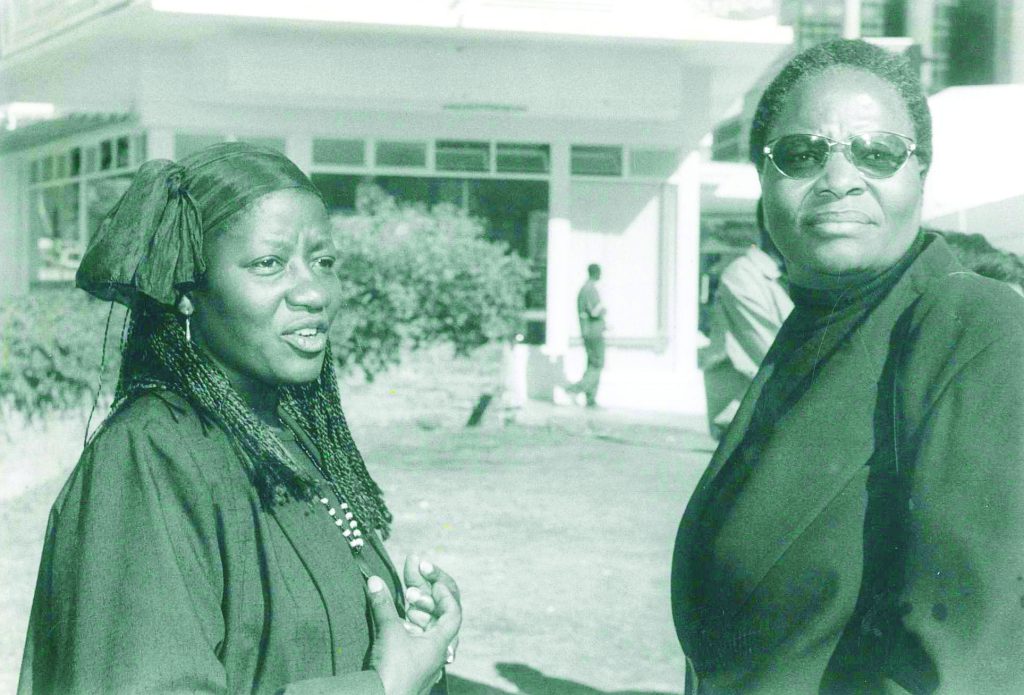
My elder sister, Kalimba, also came, but the one who really played a big role was comrade Garoëb. His departure was really a loss to us.
We have three boys and I have three stepdaughters, all born in exile. After independence we all came back and stayed together. Some are now happily married and have their own families, while two are still with us.
In terms of balancing: In any situation one has to be sensitive to one another. My family and relatives know exactly what is expected of me at national level. And they indeed have shown readiness to accept the situation. I sometimes even miss out on very important family and cultural occasions.
It is the same with my husband, a very supportive gentleman. I remember when we got married, I occupied a more senior position than him, until later when he became the chief of the Namibian Defence Force. And such developments have never even created a difference in the support he gives me in performing my national responsibilities.
This also comes from an understanding my family has that when prosperity comes to the nation they too as members of society stand to benefit.
Just to underline how my whole family understands and appreciates my work: I was in the north once and my sister’s daughter was killed by her boyfriend. It happened in court at Oshakati, where as they both were leaving the court he just took out a gun and shot her.
So now the funeral was to come and I had a ticket. I was assigned to lead a delegation abroad, until I had decided not to go. But my mother called me aside, saying: ‘’Netumbo, if you stay here, she is gone, we are all mourning, but you cannot dump the whole Namibian nation. Therefore, please go now and serve the nation, those of us who will stay will continue with what we have to do.’’
My work comes with so much sacrifice, especially to my children. There were even times I realised they may be impacted by my absence, but the support from my family was really overwhelming.
Once all three my boys said they will never become politicians, nor will they become a soldiers, apparently because we never had time for our children.
Coincidentally, while I was the minister of information, communication and technology, there was an advertisement on television encouraging fathers to take care and make time for their children. My son jokingly came out saying he is going to tell the Namibian Broadcasting Corporation to change that advert so it urges the minister of information to take care and make time for her children.
That was just them seeking more time with their parents.
These have been some of the challenges, but I maintain their support has been immense.
The problem arises when there is no trust in each other, or when you have no self-confidence.
Similarly at the office I believe in teamwork and shared responsibility.
Basically there is no way one can manage an office alone, you must delegate.
I rely on people, it is just that there must always be a leader.
In fact, for one to be effective, you must always be surrounded by people who know better than you. They will enrich you. You can’t be in a room where only you know everything. My father always used to tell us that we must listen to understand and not to respond.
We must also not be in the habit of setting up our officers for failure. You can’t give an officer work to do, while having made up your mind that they will disappoint you. No, we must groom, delegate and rely on one another and grow together. Although officers must also know their work, they must know what they are doing.
In fact, I like to give deadlines, and when you don’t deliver on the deadlines, you are delaying and holding us back, and that we can’t afford. We must always communicate and give feedback – even when we can’t meet our deadlines, we must communicate.
There’s no human who doesn’t make mistakes. The problem comes when you are arrogant and not ready to self-correct. We just need to take each other into confidence, communicate and establish a way forward to deliver.
The above are some of the values and principles that have always informed and inspired my leadership. That is also to say that I have always had brilliant support both at home with my family and at the office. Being an office-bearer you are a public servant – you will always be expected to volunteer.
Also, we must have the habit of delivering so that when the whole country prospers, I too will prosper and survive on my salary and even grow it.
When we are given work, we must deliver without fail. We must provide service. In addition, we must agree with honesty and a sense of duty in commitments that we get ourselves into. Don’t come for your self-interest, but for the good and prosperity of the nation.
I think this is basic common sense, no secret here at all. All we need is to be committed to our work, work based on trust, and don’t only delegate, but also supervise. Basics really.
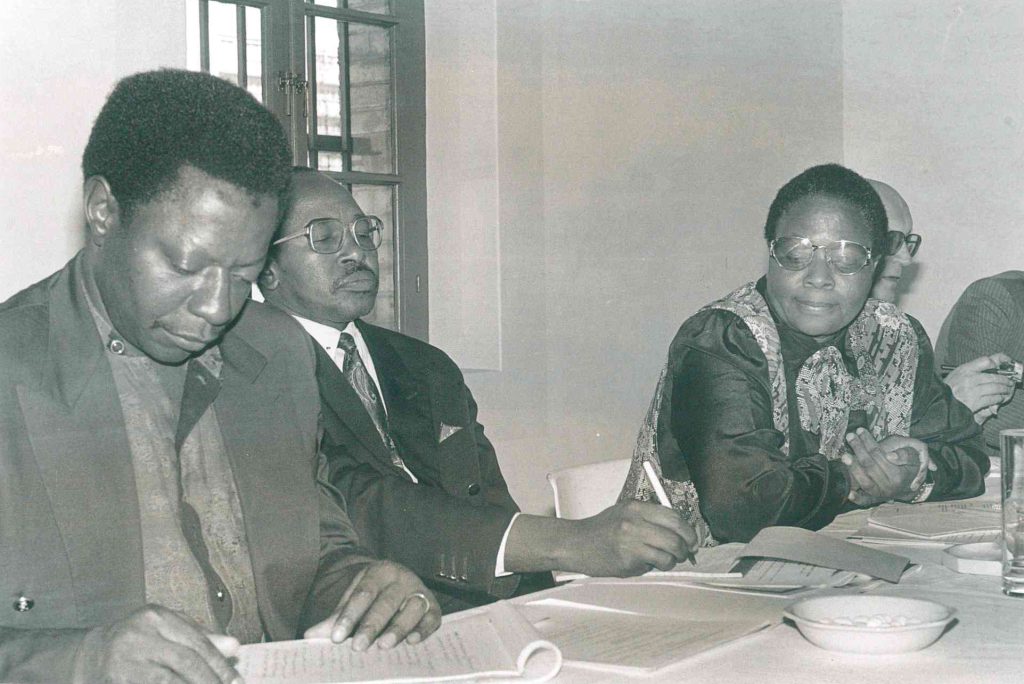
ST: What are the three most important things you do in your spare time?
NNN: When I’m in Windhoek, I spend some good quality time with my children and grandchildren. I make up for lost time with my children, telling them stories.
When I recently returned from another national responsibility, I felt so bad because I found all my grandchildren here at our home, yet I had another national responsibility at Okahandja.
Whenever they visit, we discourage them from using their cellphones and the television. In fact, we love to play a game called ‘Bingo’ – a game played in a group of four.
Another pastime of mine is to always tidy up my room. Even now I am not too old to be doing something like that. Even though one always has help here and there, I always love to tidy my room.
My third activity I would be doing in my spare time would be to read. And when I’m at my village, in addition to spending time with family, I love cultivating.
ST: What can you share with young aspiring Namibians who want to venture into politics?
NNN: Young people shouldn’t just do something because someone else is doing it.
We must have purpose. We must have conviction! We are all by nature political animals, because when you express yourself on an issue, you are practising politics.
I love it because it is humbling to serve people. Once I was addressing a session at the Namibia University of Science and Technology, then the Polytechnic, and I said we must be engaged in something we love – only then will we be passionate and honest about it.
Plus, I am also in politics because one is never short of opponents. When you have opponents, you are always thinking fast, intellectually and strategically.
So, the youth must always be confident and must also understand and champion their self-defined generational mission.
Also in this theatre, one must always be decisive and have at heart the people’s and national interest. Politics should not be for self-interest.
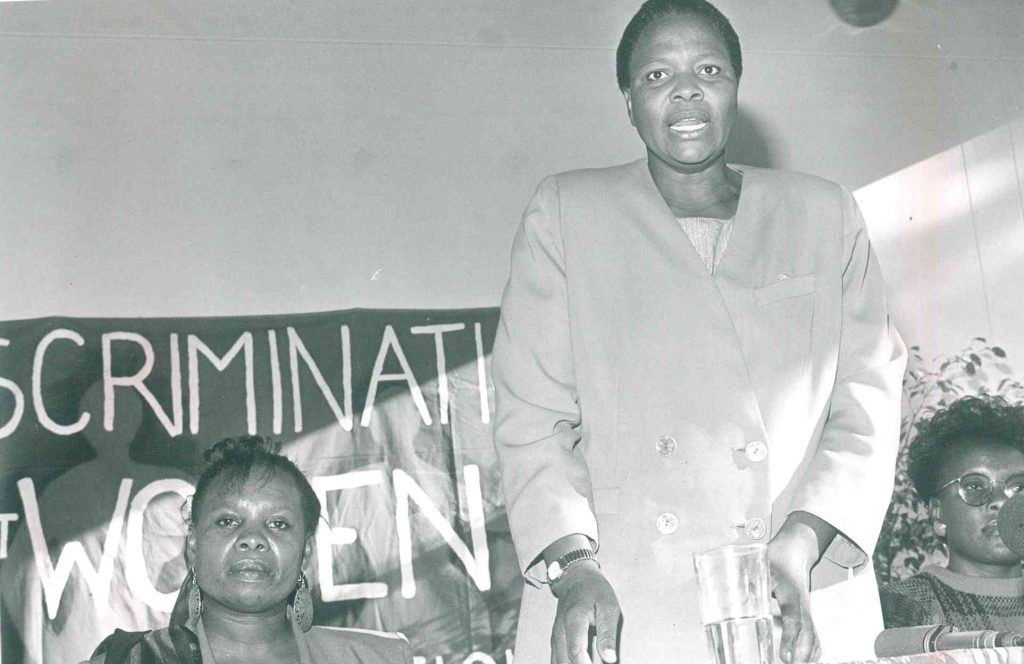
ST: What is it about you and your approach to politics that people respect?
NNN: Perhaps this is best answered by those who see the value in me, because I am not the right person to deliver justice to this question. I am, however, really humbled and happy to know I have earned respect in Namibia and across the political divide.
Also, if you hold a position, it does not mean you know everything, nor does it mean you should be or are working as an individual. And therefore, looking at Namibia, there is more than enough space for us all to serve and work.
I do feel good and look back with pride. Four of my deputy ministers, who served under my wing, ended up as ministers – honourable Marlene Mungunda, honourable Uahekua Herunga, honourable Peya Mushelenga and honourable Christine Hoëbes. This for me is leadership. It is grooming. It is mentoring. It is us working together as a collective. It is us growing from strength to strength.
ST: What informs your stance on human rights and non-confrontational solutions to international crises?
NNN: This one is not really Netumbo’s or an individual’s approach, but perhaps the Namibian approach or perspective. That is to say that in our mandate to pursue Namibia’s foreign policy, we are guided by the Namibian Constitution.
Article 96 on foreign relations is very clear that we must be guided by the principle of non-alliance and non-interference in the affairs of other countries. We should also be guided by the principle of solidarity and respect of human rights, and by the importance of self-determination.
When it comes to the question of western Sahara and Palestine, it is definitely a violation of human rights and denial of self-determination.
On the matter of Cuba, the American embargo on Cuba is an interference in the internal affairs of Cuba, because their aim is to destabilise Cuba to rally its citizens against their very own government.
Again, if we are not supporting Cuba, we are finding ourselves contradicting the principles of our constitution.
ST: Your political acumen, international exposure, social and emotional temperament and academic qualifications are undoubtedly remarkable for an average Namibian woman. What would be your comment if you were called an Ellen Johnson Sirleaf in the making?
NNN: I really wouldn’t know where the comparison comes from. But I also don’t know former president Ellen that much. I met her when we were preparing for the World Conference for Women, which took place in Beijing in 1995. At the time she was the head of the African bureau at the United Nations Development Programme.
Namibia, through myself, was given the responsibility to be the chief negotiator for the Beijing platform of action.
We needed space for consultation and engagement and madame Sirleaf was kind enough, when we got to New York, to make her office available for this purpose. That was the first time I met her.
The other time was when she came to Namibia when I was minister of women affairs after their national elections.
Perhaps the only aspect we have in common is that we are both hard-working women, who believe and advocate emancipation, empowerment and advancement of women.
Oh, yes, we also share a birthday – 20 October.
ST: Namibian demographics show many voters are women, yet experience shows that many women do not vote for other women. What kind of education do you think Namibian women need to understand that the world has evolved?
NNN: Women are always the majority, so why are we limiting the question only to Namibia? How many women do we have as heads of state in the world? You must understand it is a societal problem that stereotypes how women are engaged.
It’s just like apartheid, but because of the way racial discrimination is entrenched in our mentality, it’s how society is and that should change. Women are and should continue to be part of the very fabric of our society.
I am happy and have confidence that women have begun and will continue to play a prominent role in public life. So with the emancipation, empowerment and advancement of women, we shouldn’t expect miracles, because you are changing a system that needs a whole paradigm shift.
As for Swapo, we have done our part. We recently amended the party’s constitution for the progressive advancement of women in leadership portfolio, where it is now structured and informed by a 50/50 policy.
But we should also be guided by capacity, experience and skills.
Apparently in Africa we can only talk of one woman leader who has been elected to office, that is former president Ellen Johnson Sirleaf. Why is it that women in turn are also only reduced to being deputy presidents?
This is what we have experienced in our region with president Joyce Banda of Malawi, as well as in Tanzania.
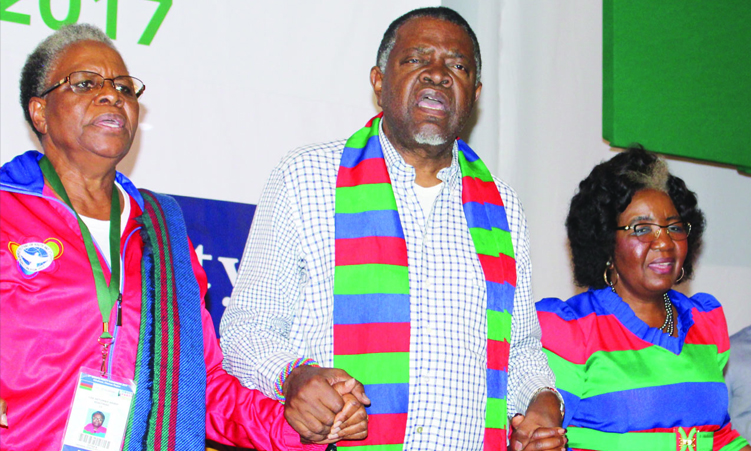
ST: As vice president of Swapo, what is your view on the political tensions the party has recently experienced?
NNN: What tensions? That I am not aware of, but we are experiencing the natural dynamics of politics in Namibia and Swapo is a leader of society in Namibia.
You must understand that the practice of politics is generally a component of power relations and struggle. And it will always find its way into the political arena.
If we look at the dynamics in Swapo, they are all related to elections – particularly after we have agreed to contest the top four positions, with specific reference to the position of the president.
This only came about when three comrades were contesting for the position of the vice president, when we knew that come the next election the founding president was not going to stand as a presidential candidate. These three comrades were comrade Nahas Angula, comrade Pohamba and comrade Hamutenya. This is when the era of contestation started.
While one event led to another, including the birth of the Rally for Democracy and Progress, we at least managed to continue. The biggest came when for the first time a sitting president of the country had to be contested. This was very dangerous.
It had the possibility to displace us.
Hence my assertion on the dynamics of politics. How do we resolve some of these matters? Remember I too am religious and cultural, and therefore in my tradition, there is a culture of talking. In addition, there is talking around the fire.
Traditionally when there is a difference among family members, we are always brought together in a room to resolve our challenges and differences.
This is one of the strategies of our party to continue being a prominent leader of Namibian society.
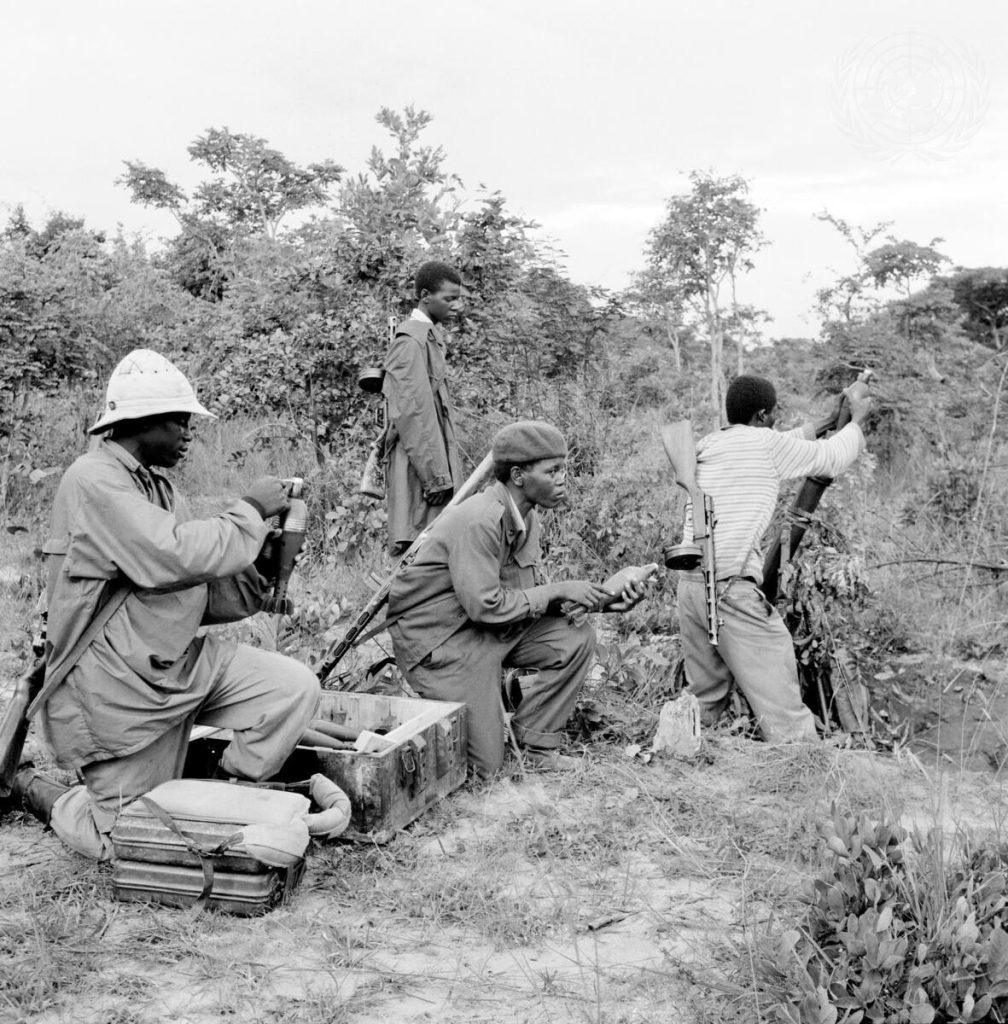
ST: Swapo brought down the monstrous apartheid regime through diplomacy and the barrel of the gun. What can the current generation of young politicians pride themselves in as revolutionaries?
NNN: What is a revolutionary? Shouldn’t it be about a system that is encroaching on basic human rights for one to revolt? The revolution of our time was informed and inspired by a generation that resisted colonialism.
The current youth have to determine what is their goal.
Ideally what they need is to ensure genuine economic independence and to bring about sustainable economic development.
Now do they have to revolt? Or do they have other means and opportunities of reaching that goal? I believe the youth are in a much better position, once they identify and champion their generational mission, generally premised on African economic independence but in particular in Namibia.
Are our young people really interested in revolting a democratic system or influencing decision-making? They are the implementers, so if you go to offices and a decision was made to drill boreholes with resources made available, when those boreholes are not delivered on time, does that become the elders’ fault or that of the young people who have been charged to deliver?
In another example, we have stateowned enterprises, led by a majority of young people, and so when we are given a responsibility, we must deliver.
We must perform to the best of our abilities!
So, the term ‘revolution’ is being misused, because we were revolting against apartheid.
Cuba is revolting against the Americans, because they are infringing on their fundamental human rights. Our fundamental human rights are not being infringed on.
Revolting is not something simple. In fact, perhaps you are not revolting, but rather inciting violence.
And therefore, our young people have much better opportunities and institutions with technology, education and so much more basic services.
But to revolt is not how they will deliver economic independence and sustainable development for shared prosperity.

ST: Where would you like to see yourself in five years’ time?
NNN: I want to live. I must be alive in five years and more. I want to find myself in Namibia, with a strong Swapo party, which continues to be the leader of Namibian society, and continues to manage the affairs of our country.
There are two main enablers for development: One is water and another is energy. If we fail in managing and harnessing these two natural resources, there’s no way we can talk about sustainable development.
We should have a breakthrough and should not have water and energy issues.
And if we were able to make rain, that would be the way to go. But of course, there are two alternatives: the desalination project is one.
In fact, when I was the minister of environment and tourism, I had very good rapport with Qatar’s minister of environment, and he explained to me how they created a forest in the desert with desalinated water from their oceans.
We were even considering an association of desert countries, so that we can benchmark best practices and help each other in the areas of food production and in transforming parts of our deserts into economic hubs.
We really need to address the issue of water. I am very happy that many Namibians have been taking a particular interest in agricultural food production. History teaches us that we can only industrialise through agricultural products, and although we have a small population, Namibians will always require food. So, if we can secure our water, we will be off to a progressive course.
I remember during his administration Sam Nujoma focused on water in the Congo. In fact, I was recently in the Democratic Republic of Congo to attend the Joint Commission of Cooperation between Namibia and Congo. I was accommodated in a hotel overlooking the Congo River. So, this idea is still alive.
If oil can come from as far as Serbia and Russia for the entire Africa, water from and among the region is possible.
So, I want to see the problem of water resolved in Namibia, because it is an enabler of economic development.
There is also just no way we can talk about industrialisation without energy. When our people begin to fully produce and harvest their fruit and vegetables, we will need processing plants for value addition and storage. But that too will require energy.
When I was minister of women affairs, I went to Tanzania, and I visited a company that produced ceramic products, and they said we have more than enough ceramic soil at Mariental.
They said they preferred to actually produce their products in Namibia, but that it required a lot of energy.
We also have green hydrogen, and Namibia is one of the best laboratories, with ours at Lüderitz.
These are some of the projects and developmental outputs that would really put Namibia on course.
And once we make such breakthroughs, the sky will be the limit for Namibia!
*This interview has been shortened.
Stay informed with The Namibian – your source for credible journalism. Get in-depth reporting and opinions for
only N$85 a month. Invest in journalism, invest in democracy –
Subscribe Now!




